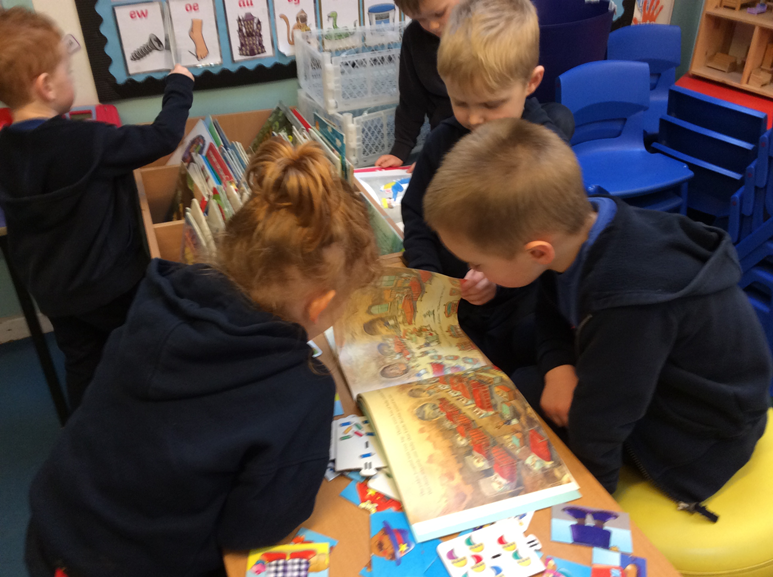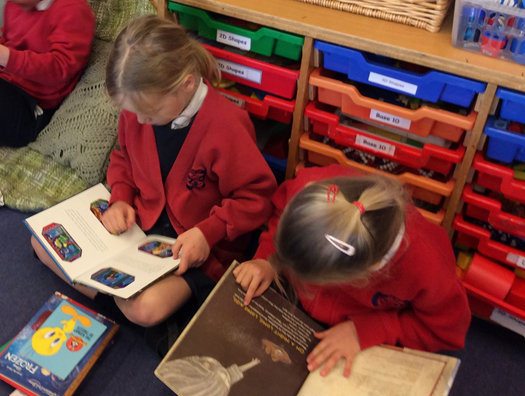Reading, Writing and Phonics
Reading
Reading Intent Statement
Books allow us to travel to wonderful places, experience different cultures, go back in time and explore new and imaginary worlds. Here at Henley, we believe that every child should be given the opportunity to experience the joy and wonder that books provide us. We strive to develop every one of our pupils’ reading skills, so that they can become fluent, avid readers. Through a wide range of reading opportunities, we prioritise giving our children every opportunity to access a wide variety of literature and texts that challenge, inform and inspire them.
Independent Reading
At Henley, every child starts their reading journey through a colour coded scheme that has a phonetic focus. Once they have worked their way through all the colour stages, they move onto the Accelerated Reading scheme. This allows them to build develop their comprehension skills through a range of both classical and contemporary authors.
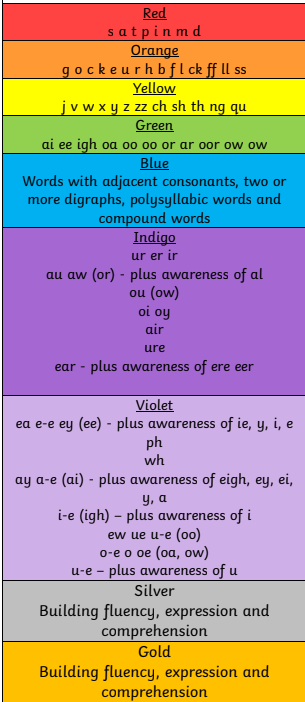
Whole Class Reading
At Henley, we follow a Whole-Class reading structure where the whole class engage in the same text with differentiated questioning and resources to help them build on their reading and comprehension skills. Alternative texts are provided in small group settings for those children who cannot access the chosen text. We aim to expose children to a wide variety of fiction, non-fiction and poetry in these reading lessons based the topic and interests of the children.
During Whole Class Reading lessons, we break down comprehension skills using the VIPERS acronym:
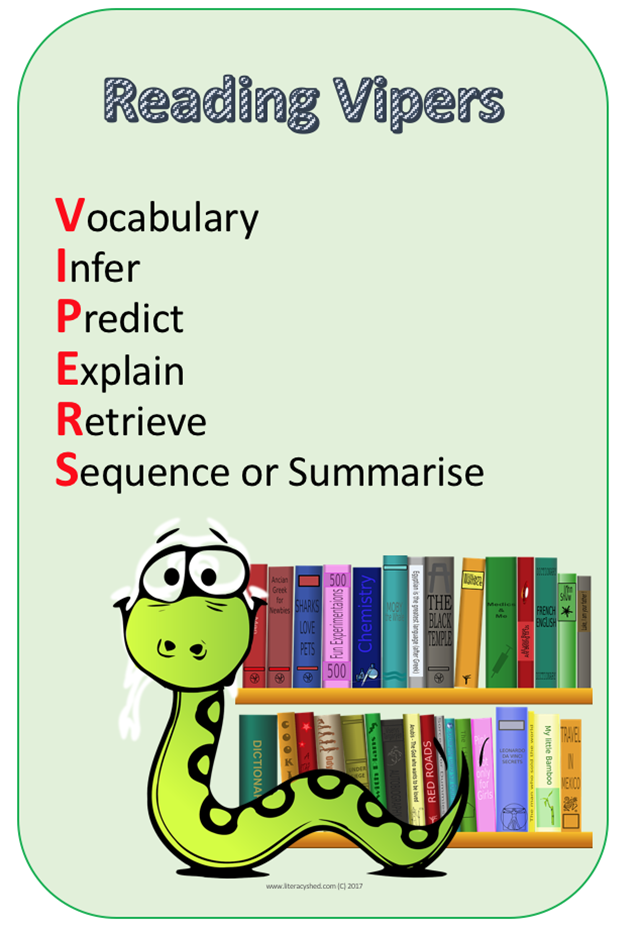
Our Whole Class Reading Structure offers every child the opportunity to dive into a text and really explore it using the following structure:
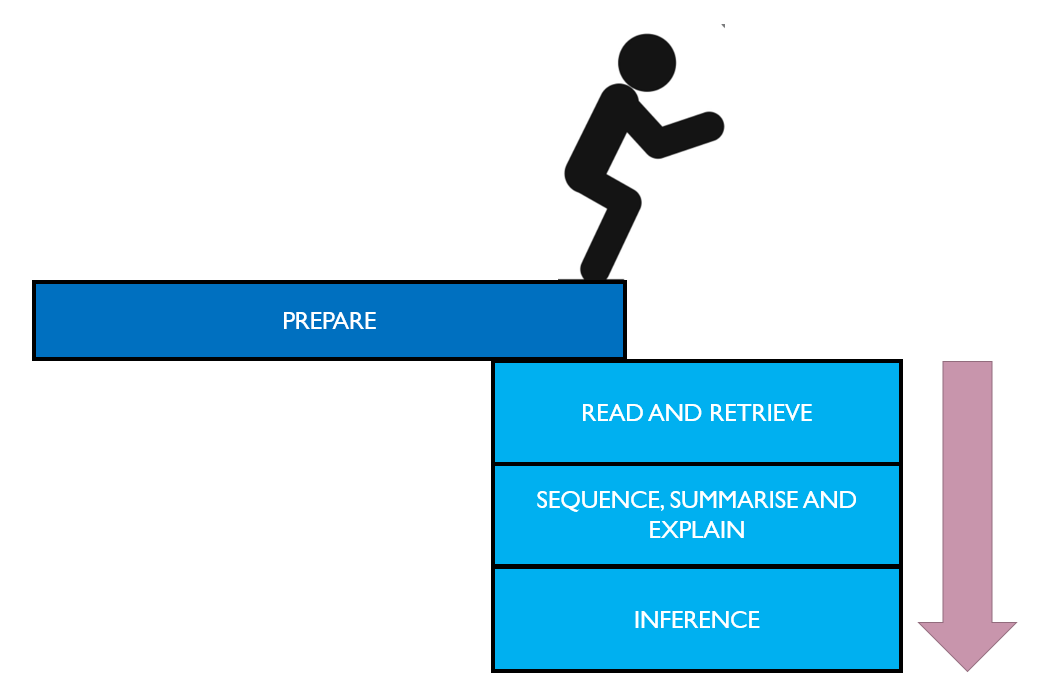
Prior to reading a text, we always prepare a child to read through prediction activities and reteaching key vocabulary that the children will come across in the text.
The children will then engage with reading the text, with the teacher modelling good reading, as well. Over several lessons, the children will then aim to dive deeper into the text, exploring and developing the VIPERS skills along the way.
writing
Writing Intent Statement
At Henley, we appreciate that writing is a major form of communication as well as an outlet for children’s imaginations and curiosity. We believe that providing a challenging and inspiring curriculum, that teaches the skills behind good writing whilst embedding a love for the written word, is every child’s right. Through discrete spelling, punctuation and grammar lessons, we allow children to identify, practise and apply key techniques that allow children to strengthen their skills in writing composition. At Henley, we believe that writing should be a joy, so we aim to provide engaging, topic based writing opportunities as part of a cycle that allows every child to write based on experiences, their knowledge, their interests and varied abilities.
Our Writing Cycle
Writing lessons at Henley are based heavily on our topics. We focus on teaching writing for a purpose and ensure that, over the course of the academic year, pupils will have the opportunity to entertain, inform, persuade and discuss, through the following styles:
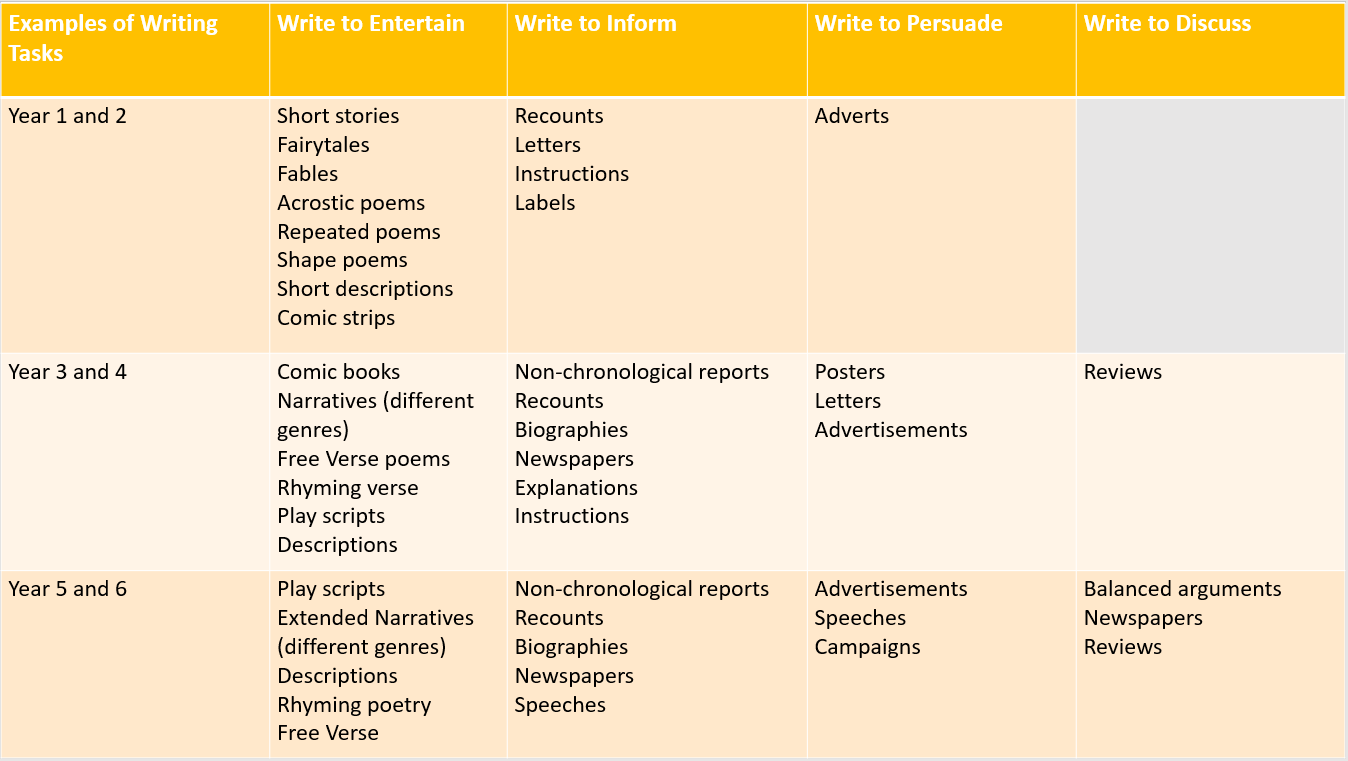
Writing tasks are structured through the following cycle:
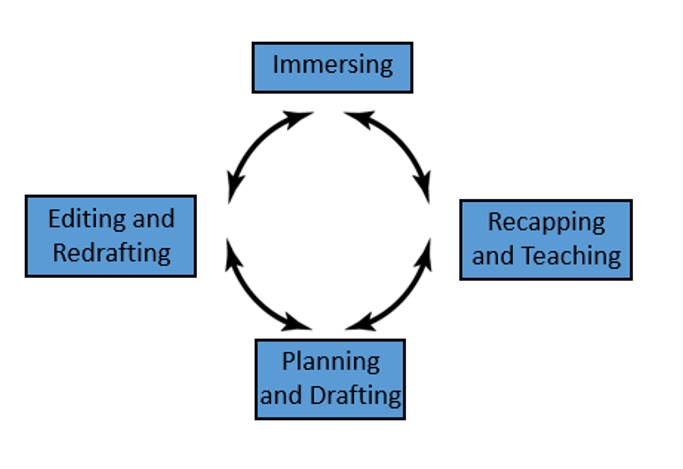
Immersing: At the start of a writing cycle, the children are immersed in their writing subject. This may involve a variety of cross curricular activities using art, drama, reading a particular text or even going on a school trip. This is an important starting point that gives pupils an experience on which to write about, rather than expecting them to write about something that is abstract to them.
Recapping and Teaching: At this point in the cycle, the teacher focuses on recapping and teaching key skills that will allow the child to write successfully. These lessons will involve looking at the language, structure and grammatical and punctuation skills.
As part of this section, lessons in developing sentences through spelling, punctuation and grammar. Key grammatical and punctuation skills are taught through the following three steps in order to develop a deep conceptual understanding of the skills:
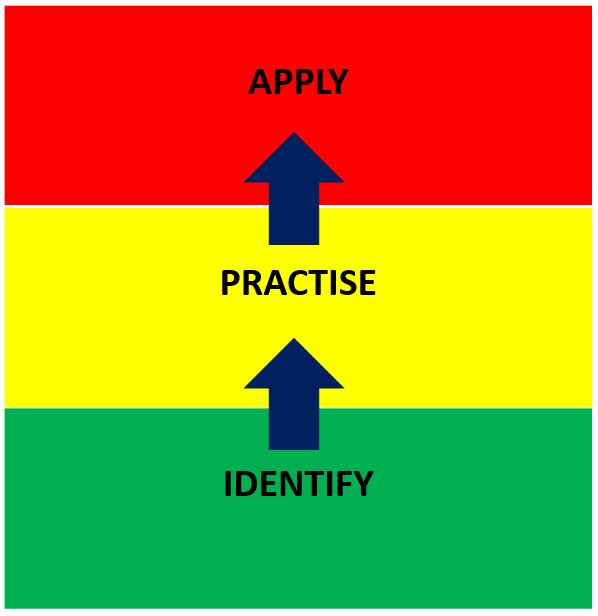
Planning and Redrafting: As soon as the teacher feels confident that the children have a strong understanding of what they are writing, why they are writing and how they are going to write it, pupils then move on to plan and write their composition. This first draft will then be marked by the class teacher before moving on to the last and final part of the cycle.
Editing and Redrafting: This final stage gives children the opportunity to look at their work, edit it and then take a section of their writing to redraft and improve it. Time is taken to teach our pupils how to edit and improve effectively and teacher's continuously encourage pupils to identify where they can upscale their writing.
spelling
Spelling
Spelling from the end of Key Stage 1 and throughout Key Stage 2 is taught using the Sounds and Syllables spelling scheme. Children work their way through six tiers to learn all the spelling rules outlined in the National Curriculum through a dyslexic-friendly strategy, allowing them to split words into syllables and focus on one syllable at a time.
Writing for Pleasure
One of our Year 6 Children wrote this poem in her own time based on her love of animals.
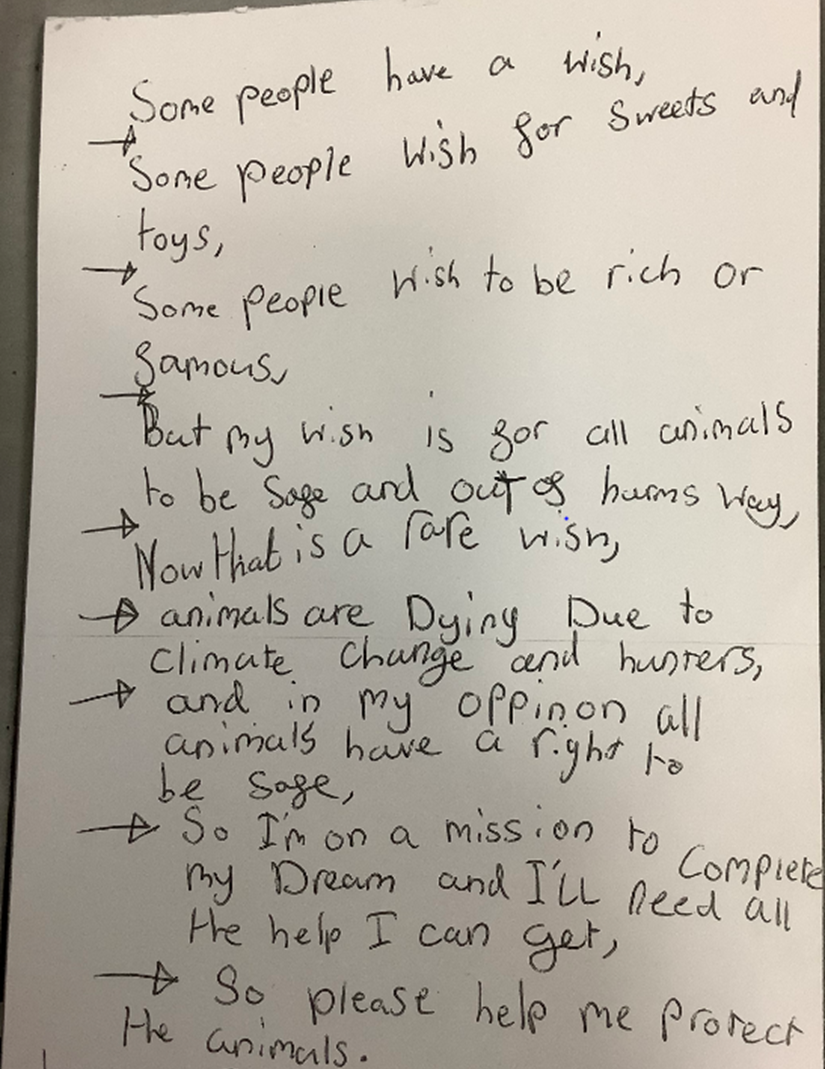
Reading for Pleasure
At Henley, we love reading! We try to take every opportunity we can to instil a love of reading into our pupils.
Here are some photos from our latest Stop and Read afternoon. Staff and students all stopped what they were doing to get together and enjoy reading a book of their choice. It was great!
